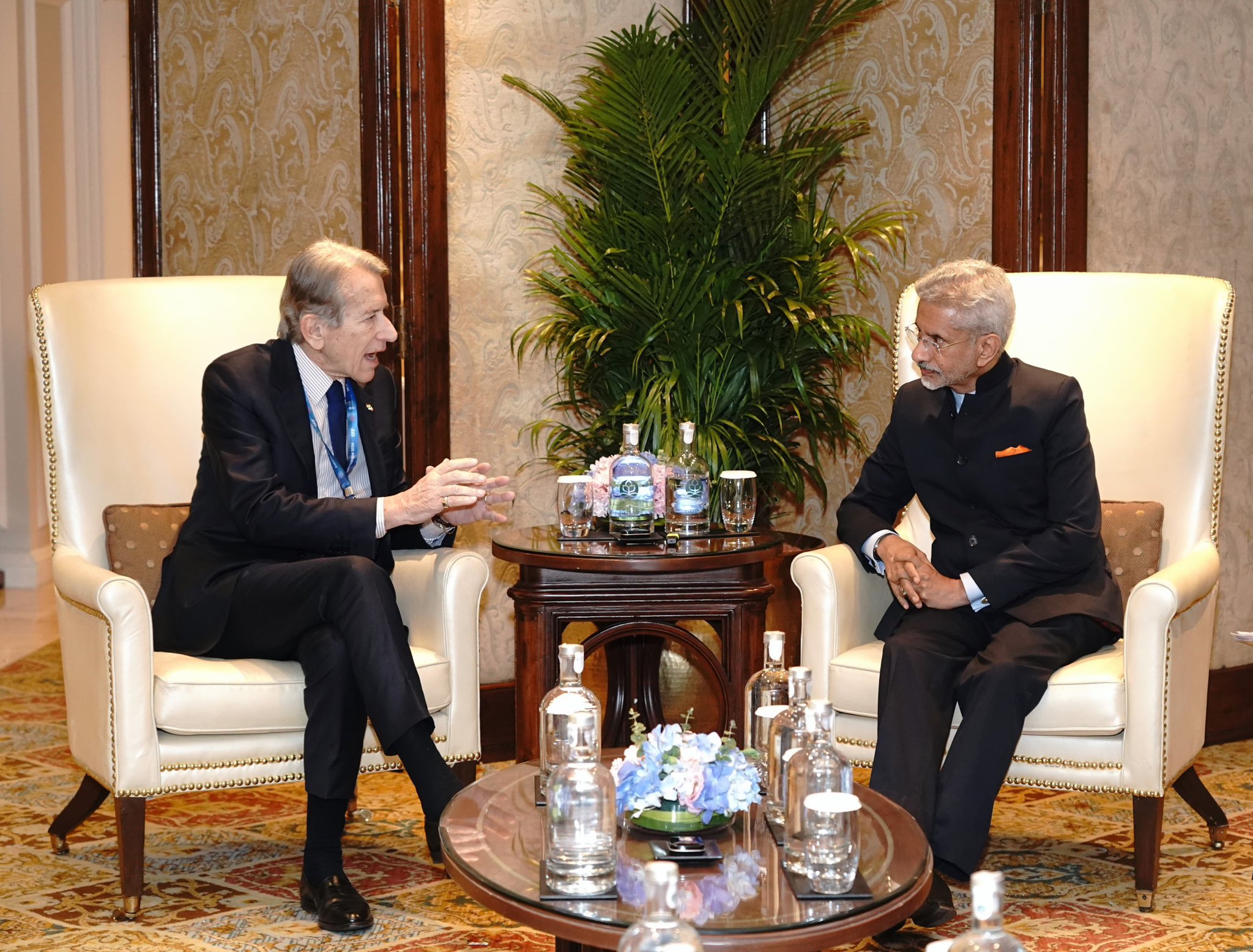During his visit to New Delhi, India, to participate in the Raisina Dialogue, on 22 February Senator Giulio Terzi met with Indian Minister of Foreign Affairs Subrahmanyam Jaishankar to discuss the relations between India and Italy and the EU, which Senator Terzi is dealing with as President of the Senate Committee on EU Policies. Speaking to ANI News Agency, Senator Terzi praised “the splendid relationship between India and Italy” which is also the result of “the establishment of the new government in Rome in 2022. It was during the first official visit by Prime Minister Giorgia Meloni to meet Prime Minister Narendra Modi that helped make a lot of progress in the ties.”
Giulio Terzi also spoke on Artificial Intelligence (Al), stating that this is one of the top priorities and challenges that the world is facing today: “The most critical aspect of today’s world is Al when we talk about connectivity and corridors. The European Union has just adopted and is already in the process of implementing the Artificial Intelligence Act. Minister Jaishankar posted on X: “Continued a conversation with Senator Giulio Terzi of Italy, this time on sidelines of #RaisinaDialogue2024.” The conversation follows an official visit by Prime Minister Giorgia Meloni to India in March 2023, during which bilateral relations between India and Italy were upgraded to the level of Strategic Partnership.
Later that day, Sen. Terzi also spoke to WION, an Indian English language news channel, about the G7 summit and, amongst other things, China, saying that “there is no doubt that China, over the last years, has been considered a very important partner and, at the same time, a competitor for which our countries sometimes are under the impression of being considered as adversary in geopolitical terms. China (…) would like to change completely international order, and it is important to recall something from the original meeting between Prime Minister Meloni and Prime Minister: the fact that the international order can surely be revisited and reformed, but it must not be disrupted. The international order is not meant to be a hierarchical order where some countries direct other countries, although it happens under certain circumstances and i other parts of the world. However, the international order means respect for the treaties that our countries have ratified, respect for multilateral organizations that we belong to, respect for the rule of law, equality, and freedom.”

